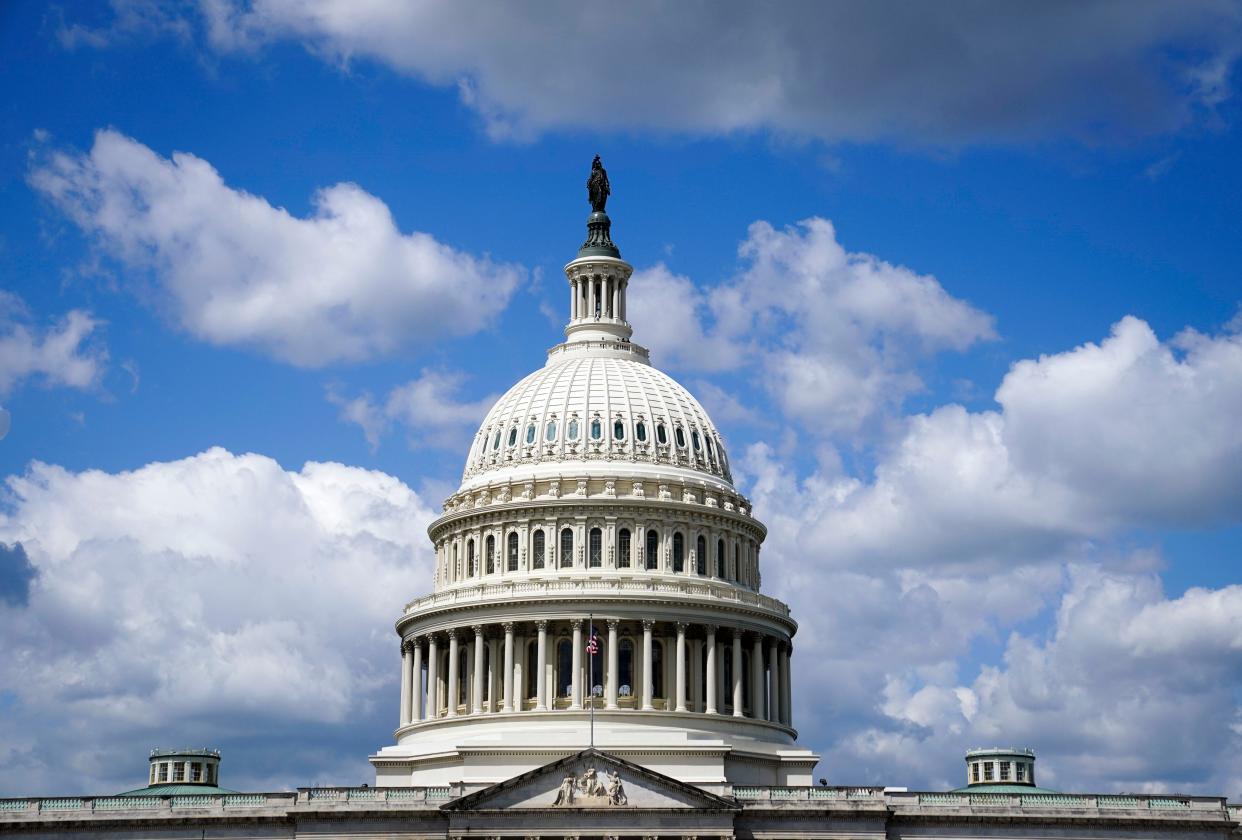Two U.S. House members introduce bill that would grant NCAA legal protection

Two members of the U.S. House of Representatives on Wednesday introduced a bill that would give the NCAA, conferences and colleges the type of protections from lawsuits that they have been seeking as part of legislation aimed at creating federal rules regarding athlete compensation and other college-sports matters.
The move by Rep. Russell Fry (R-S.C.) and Rep. Barry Moore (R-Ala.) comes against the backdrop of ongoing efforts to settle a set of lawsuits against the NCAA and major conferences that are seeking billions of dollars in damages and challenging the association’s remaining rules regarding athlete compensation. ESPN and Yahoo! Sports reported on the settlement negotiations last week.
In a news release, Fry and Moore — both of whom are members of the House Judiciary Committee — said their bill is “intended to accompany broader legislation establishing a national framework that secures student-athletes’ right to receive compensation and sets a federal standard with guardrails in place.”
At present, however, the only wide-ranging bill to have been introduced this session is one offered last July by Sens. Tommy Tuberville, R-Ala., and Joe Manchin, D-W. Va. That bill has not gained traction. Discussion drafts of bills have been announced by Sen. Ted Cruz (R-Tex.), by Sens. Cory Booker (D-N.J.), Richard Blumenthal (D-Conn.) and Jerry Moran (R-Kan.), and by Rep. Gus Bilirakis (R-Fla.). Cruz, Booker, Blumenthal and Moran have been attempting to negotiate a compromise proposal. Cruz also has been seeking provide a form of legal protection for the NCAA, conferences and schools.
So, the bill introduced on Wednesday likely stands as an effort by some members of the Republican-controlled House to make a statement on their position concerning wide-scale antitrust protection for the NCAA and its conferences and schools. Democrats in the House and Senate so far have shown little interest in providing such assistance.
The bill introduced Wednesday would prevent the NCAA, conferences and schools from being sued for:
▶"the adoption of, agreement to, enforcement of, or compliance with any rule or bylaw of” an association, conference or school “that limits or prohibits a student athlete receiving compensation from” an association, conference, school or other person or entity.
▶“restricting the [playing] eligibility of a student athlete who violates a rule” of the school, conference or association.
▶“complying with an agreement, understanding, rule or bylaw” adopted by a school, conference, association “(or a combination of conferences or institutions) that is reasonably contemplated under Federal law.”
In February, NCAA President Charlie Baker told a small group of reporters in Washington of the need for a "very limited" form of legal protection. Others in college sports have repeatedly discussed what they say is a need for the association and the schools to end exposure to lawsuits that they have faced not only on athlete compensation, but also on transfer rules and schools’ ability to suspend athletes for violating school and/or athletics department policies.
Some of these lawsuits have been built on top of each other. For example, one of the pending lawsuits that the NCAA is attempting to settle is seeking damages it contends are owed to athletes as a result of the Alston case that was decided by the Supreme Court.
In addition, at present, there are an array of differing state laws concerning athletes’ ability to make money from their name, image and likeness (NIL) through activities including endorsement deals, public appearances, operating camps and signing autographs. About three weeks ago, Virginia Gov. Glenn Youngkin (R) signed into a law a measure that, as of July 1, will allow college athletes in the state to be paid directly by their schools for the schools’ use of the NIL.
“NIL rules are ever-changing, heavily litigated, and essentially unenforceable — causing confusion and chaos for everyone involved,” Fry said in a statement. “We must establish a liability shield on the national level to protect schools, student-athletes, and conferences as they navigate this new set of circumstances. This legislation is an integral component of saving college sports as we know it.”
Baker said in February of possible antitrust exemption: “I would like something that's very limited here, and I'm perfectly happy to have some federal oversight with regard to that limitation. The sort of broad-stroke antitrust exemption that people have talked about — I don't think that's necessary. I'm looking for something that just will end the uncertainty and the chaos around some of the very basic rule-making that's a part of all this.”
This article originally appeared on USA TODAY: Bill granting NCAA anti-trust protection introduced in Congress

 Yahoo News
Yahoo News 
